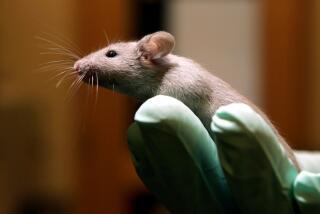Despite known health risks, researchers question the need to cut back on red meat

Eating red meat is linked to cancer and heart disease, but are the risks big enough to justify giving up juicy burgers and succulent steaks?
Probably not, according to researchers who reviewed data from 12 clinical trials involving about 54,000 people. In a series of controversial papers, the researchers argue that the increased health risks tied to red meat are small and uncertain, and that cutting back likely wouldnât be worth it for people who enjoy meat.
Those conclusions, which appear in Tuesdayâs edition of Annals of Internal Medicine, go against established medical advice. They were swiftly attacked by a group of prominent U.S. scientists who took the unusual step of trying to stop the papers from being published until their criticisms were addressed.
The new work does not say red meat and processed meats like hot dogs and bacon are healthy, or that people should eat more of them. The teamâs reviews of past studies generally support the ties to cancer, heart disease and other bad health outcomes.
But the authors say the evidence is weak, and that thereâs not much certainty meat is really the culprit, since other diet and lifestyle factors could be at play.
Most people who understand the magnitude of the risks would say âThanks very much, but Iâm going to keep eating my meat,â said Dr. Gordon Guyatt of McMaster University in Canada, a member of the international research team that conducted the reviews.
Itâs the latest example of how divisive nutrition research has become, with its uncertainties leaving the door open for conflicting advice. Critics say findings often arenât backed by strong evidence. Defenders counter that nutrition studies can rarely be conclusive because of the difficulty of measuring the effects of any single food, but that methods have improved.
âWhat we need to do is look at the weight of evidence â thatâs what courts of law use,â said Dr. Walter Willett, a professor of epidemiology and nutrition at Harvardâs T.H. Chan School of Public Health who was among those calling for the papersâ publication to be postponed.
Willett, who has led studies tying meat to poor health outcomes, also said the reviews do not consider the particularly pronounced benefits of switching from red meat to vegetarian options.
Editors at Annals of Internal Medicine defended the work and said the request to have it pulled is not how scientific discourse is supposed to happen. Guyatt called the attempt to halt publication âsilly.â
In the papers, the researchers sought to gauge the potential impact of eating three fewer servings of red meat or processed meat each week. Considering that the average person in North America and Western Europe eats two to four servings per week, they said the evidence for cutting back wasnât compelling.
For example, they found that cutting three servings of red meat a week would result in seven fewer cancer deaths per 1,000 people.
Based on the analyses, the researchers said people do not have to cut back for health reasons. But they noted that their own advice is weak, and acknowledged that they didnât take into account factors such as animal welfare and the toll meat production has on the environment.
Indeed, the case that meat production is bad for animal welfare and the environment is stronger than the case that itâs bad for human health, according to an editorial that accompanies the report.
âBoth of these issues might be more likely to sway people, and they have the added benefit of empirical evidence behind them,â wrote Dr. Aaron Carroll and Tiffany Doherty of the Center for Pediatric and Adolescent Comparative Effectiveness Research at the Indiana University School of Medicine. âAnd if they result in reducing meat consumption, and some receive a small health benefit as a side effect, everyone wins.â
Not all of the report authors agreed with its conclusions. Three of the 14 researchers said they support reducing red and processed meats. A co-author of one of the reviews is also among those who called for a publication delay.
Those who pushed to postpone publication also questioned why certain studies were included in the reviews while others were left out.
Dr. Frank Hu, who heads the Department of Nutrition at Harvardâs public health school, also noted that about a third of American adults eat at least one serving of red meat a day. He said the benefits of cutting back would be larger for those who eat such high amounts.
Still, other researchers not involved in the reviews have criticized nutrition science for producing weak and conflicting findings. Dr. John Ioannidis, a professor of medicine at Stanford University, said such advice can distract from clearer, more effective messages, such as limiting how much we eat.
As for his own diet, Guyatt said he no longer thinks red or processed meats have significant health risks. But he said he still avoids them out of habit, and for animal welfare and environmental reasons.





